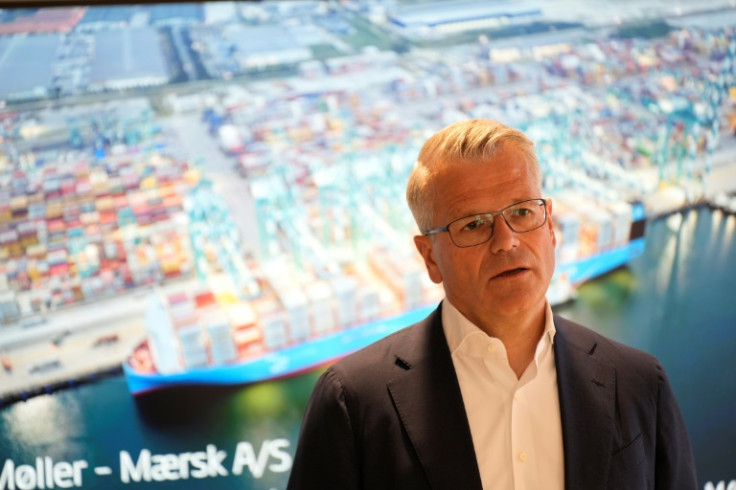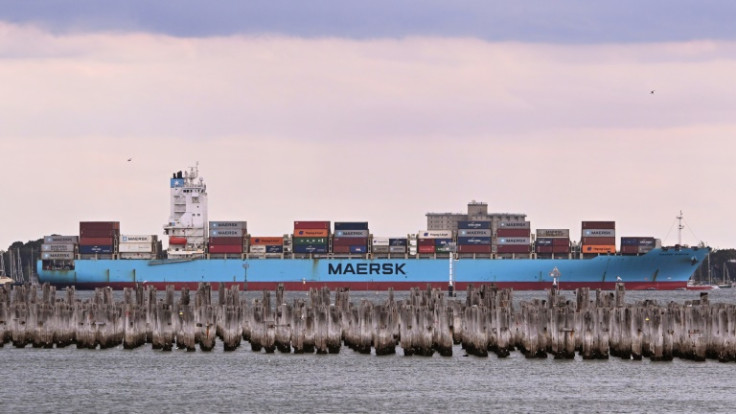Maersk's Net Profit Sinks Amid Red Sea Attacks

Danish shipping giant Maersk posted a huge drop in net profit for the first quarter on Thursday as Yemeni rebel attacks force it to avoid the vital Red Sea route.
Maersk reported a net profit of $177 million in the first three months of the year, a 13-fold drop from the same period last year.
Turnover fell 13 percent to $12.4 billion, slightly lower than forecast by analysts surveyed by financial data firm FactSet.
The company raised, however, its outlook for the full year, citing higher demand and increased rates.
It now expects an underlying core profit ranging between $4 billion and $6 billion, up from $1 billion-$6 billion previously.
"We had a positive start to the year with a first quarter developing precisely as we expected," Maersk chief executive Vincent Clerc said in a statement.
"Demand is trending towards the higher end of our market growth guidance and conditions in the Red Sea remain entrenched," he said.
"This not only supported a recovery in the first quarter compared to the previous quarter, but also provides an improved outlook for the coming quarters, as we now expect these conditions to stay with us for most of the year."
The Maersk share price was nonetheless down by almost five percent on the Copenhagen stock exchange around two hours after the earnings report was released, on a largely flat market.
Iran-backed Huthi rebels, who control the Yemeni capital Sanaa and much of the country's Red Sea coast, have launched dozens of attacks on ships since November, claiming solidarity with Palestinians caught up in the Israel-Hamas war.
The United States in December announced a maritime security initiative to protect Red Sea shipping from the attacks, which have forced commercial vessels to divert from the route that normally carries 12 percent of global trade.
Maersk and other shipping groups have instead chosen to send their fleets around the Cape of Good Hope, which takes about two weeks longer, incurring additional costs.
According to the International Maritime Organization, 60 percent of the container transport that previously passed through the Suez Canal now passes south of Africa.
The Danish group said the alternate route led to a seven percent increase in its first quarter operating costs compared to the corresponding period last year.
In its maritime shipping unit, Maersk's main business, loaded volumes increased during the quarter by 7.5 percent, led by higher demand primarily on Asia-Europe, North America and Asia routes.
The average loaded freight rate decreased by 18 percent year-on-year, but increased by 23 percent from the previous quarter, driven by the situation in the Red Sea and Gulf of Aden.
Maersk said efforts to reorganise its traffic have enabled it to cope with the situation and improve the use of its ships to 95 percent even though "reliability suffered".

© Copyright AFP 2025. All rights reserved.





















